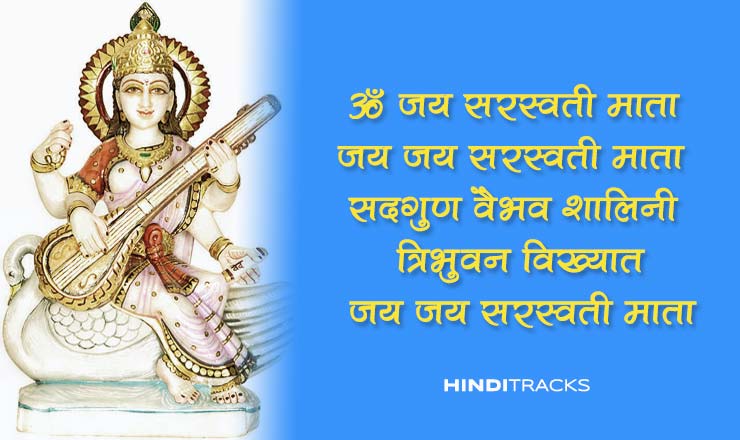
The word Saraswati appears both as a reference to a river and as a significant deity in the Rigveda. It is also a Sanskrit composite word of surasa-vati (सरसु+अति) which means "one with plenty of water". Originally associated with the river or rivers known as Saraswati, this combination, therefore, means "she who has ponds, lakes, and pooling water" or occasionally "she who possesses speech". Saraswati, is a Sanskrit fusion word of saras (सरस्) meaning "pooling water", but also sometimes translated as "speech" and vati (वती) meaning "she who possesses".
SARASWATI VANDANA PDF HOW TO
Some Hindus celebrate the festival of Vasant Panchami (the fifth day of spring, and also known as Saraswati Puja and Saraswati Jayanti in so many parts of India) in her honour, and mark the day by helping young children learn how to write the letters of the alphabet on that day. Each of these items have symbolic meaning in Hinduism. She is generally shown to have four arms, holding a book, a rosary, a water pot and a musical instrument called Veena.



She has remained significant as a goddess from the Vedic period through modern times of Hindu traditions. The earliest known mention of Saraswati as a goddess is in the Rigveda. All the three equal forms unite with the trimurti of Brahma, Vishnu, and Shiva to create, maintain, and regenerate the Universe, respectively. She is a part of the tridevi of Saraswati, Lakshmi, and Parvati. Saraswati ( Sanskrit: सरस्वती, IAST: Sarasvatī) is the Hindu goddess of knowledge, music, art, speech, wisdom, and learning.


 0 kommentar(er)
0 kommentar(er)
